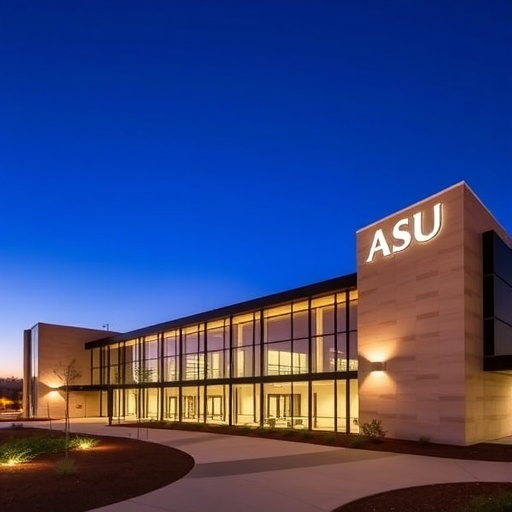Arizona State University propels health education into a new era with the announcement of preliminary accreditation for its pioneering John Shufeldt School of Medicine and Medical Engineering. This critical milestone, granted by the Liaison Committee on Medical Education (LCME), marks a pivotal step enabling the institution to commence recruiting its inaugural class of medical students slated for enrollment in 2026. In tandem with this milestone, ASU secured a transformative nine-figure endowment, the university’s second-largest gift in its history, which will anchor the establishment and sustainable operation of the medical school.
This new institution stands to revolutionize medical education by integrating multidisciplinary approaches, harmonizing traditional clinical training with advanced engineering principles, technological innovation, and humanistic care. The John Shufeldt School embodies a vision of health education that transcends classical paradigms by cultivating physicians who are not merely medical practitioners, but also adept innovators and entrepreneurs—prepared to navigate and lead within a rapidly evolving healthcare landscape shaped by emerging digital tools and scientific breakthroughs.
ASU President Michael Crow highlighted the prestige and rigorous process behind the LCME accreditation, emphasizing the relentless commitment of the university team and the committee’s faith in the institution’s potential. This accreditation paves the way for the school to start enrolling students eligible for federal financial aid and licensure examinations, signaling a full-fledged integration into the national medical education framework.
John Shufeldt, the school’s namesake and benefactor, is an exemplar of the integrated, forward-thinking medical leader ASU aims to produce. Holding an MD, JD, and MBA, Shufeldt is board-certified in emergency medicine and boasts a distinguished history of founding innovative healthcare ventures such as NextCare, MeMD, and Tribal Health. His vision of intertwining medicine with entrepreneurship and technology resonates deeply with ASU’s mission, and his philanthropy extends beyond financial support to an active engagement with the school’s development and its educational philosophy.
The curriculum at the John Shufeldt School of Medicine and Medical Engineering is fundamentally dualistic, marrying the depth of medical training with the rigor of engineering sciences. Students will earn both an MD and a Master of Science in medical engineering concurrently over the span of four years, positions them uniquely at the confluence of clinical expertise and technological innovation. Graduates will be equipped not only to deliver exemplary patient care but also to engineer and implement breakthrough devices, AI-driven diagnostic tools, and data science methodologies that will redefine healthcare delivery.
Dr. Holly Lisanby, the founding dean, describes this integrated educational ethos as fully immersive, ensuring students acquire fluency in both medical and engineering literatures and cultures. This approach includes collaboration with faculty who bring expertise not only from clinical and engineering backgrounds but also from entrepreneurial and venture capital environments. Such an education aims to cultivate physician-engineer-entrepreneurs who will spearhead transformative changes in healthcare innovation and delivery.
The partnership with HonorHealth as the primary clinical affiliate provides students with access to real-world, high-caliber clinical environments where they can translate theoretical knowledge and engineering innovation into practical medical solutions. This synergy ensures that the school is not isolated academically but rooted in the dynamic, patient-centered ecosystem where future healthcare leaders will thrive.
ASU Health, the broader interdisciplinary system encompassing the John Shufeldt School, serves as a central hub for health-related education and research at ASU. This system integrates diverse entities such as the School of Technology for Public Health, the Edson College of Nursing and Health Innovation, the College of Health Solutions, and the ASU Health Observatory, all converging within the Phoenix Bioscience Core. Together, they create a unique educational ecosystem designed to tackle health challenges through a comprehensive, innovation-driven lens.
Financially underpinning this ambitious venture, Shufeldt’s gift also supports the establishment of an endowed professorship focused on entrepreneurship in medicine. Furthermore, it inaugurates the health-tech venture philanthropy fund managed by the ASU Foundation, intended to identify and fund pioneering entrepreneurs under the title Xcellerant Ventures Founders. This funding structure facilitates a dynamic innovation pipeline, fueling entrepreneurial ventures born from the academic environment and extending their impact into the commercial healthcare sector.
The physical home of the new school at the Mercado district in downtown Phoenix strategically positions it at the heart of a burgeoning bioscience ecosystem, fostering collaboration with industry and clinical partners in the urban core. Construction of the ASU Health headquarters, poised to be the future home of the school, is slated to begin in spring 2026 with completion expected by 2028, signaling continued expansion and commitment to the region’s health innovation landscape.
This development comes with the understanding that preliminary accreditation is a foundational step within a multi-stage process governed by LCME standards. As the school enrolls students and demonstrates progress toward meeting comprehensive educational benchmarks, it will transition through provisional accreditation and ultimately full accreditation upon the graduation of its first class. This phased approach ensures sustained quality and compliance, safeguarding the integrity and excellence of medical education delivered.
The John Shufeldt School of Medicine and Medical Engineering heralds a new model in medical education—one that calls for physicians who excel clinically while also mastering engineering principles and entrepreneurial skills. This novel approach anticipates a future where healthcare innovation is driven not only by scientists and technologists but by physician-leaders fully equipped to bridge gaps between medicine, technology, and business. As ASU launches this initiative, the medical landscape stands on the precipice of transformative change, promising enhanced patient outcomes and the evolution of healthcare systems worldwide.
Subject of Research: Medical Education, Health Technology Innovation, Interdisciplinary Health Sciences
Article Title: Arizona State University’s John Shufeldt School of Medicine and Medical Engineering Secures Preliminary LCME Accreditation and Major Endowment
News Publication Date: Not provided
Web References:
https://mediasvc.eurekalert.org/Api/v1/Multimedia/e9b37969-4954-4dc0-8603-f966371f880b/Rendition/low-res/Content/Public
Image Credits: ASU
Keywords:
Health and medicine, Clinical medicine, Personalized medicine, Applied sciences and engineering




